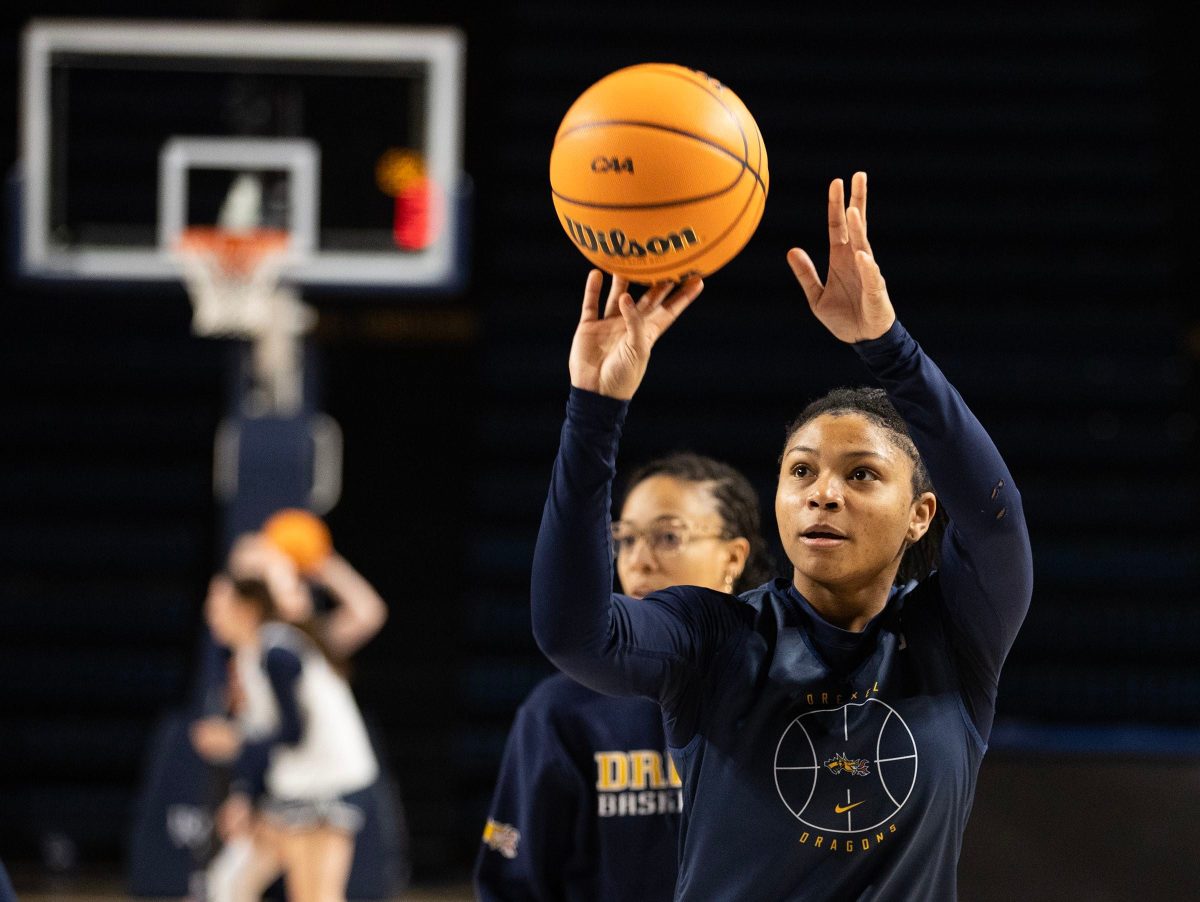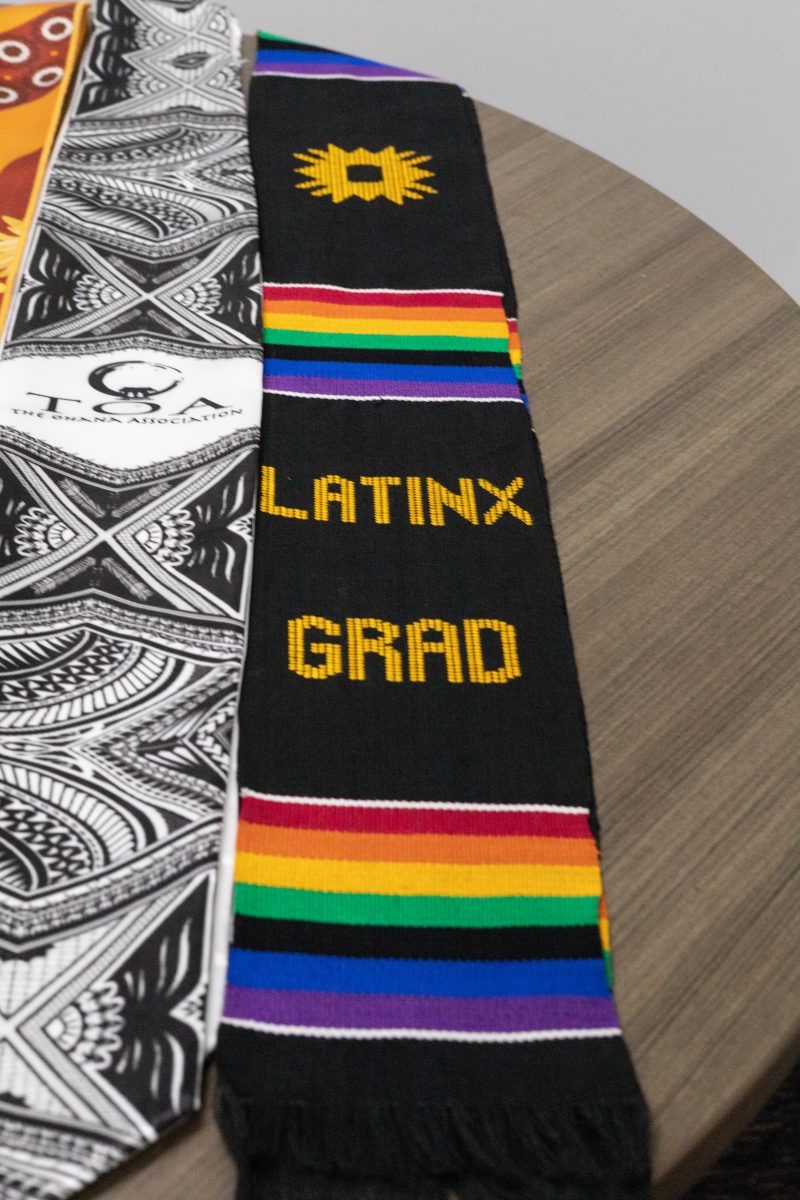Sheldon Spotted Elk, keynote speaker Thursday at the seventh annual American Indian Symposium, gave unique insight into the issues of juvenile justice, spirituality and the threat of losing touch with heritage and traditions in Utah’s American Indian communities.
 [/media-credit]
[/media-credit]
- Sheldon Spotted Elk discusses challenges facing American Indian children.
A juvenile court judge, an American Indian child advocate and a Navajo expert on American Indian culture made up a panel of speakers representing three distinct perspectives on the issue.
Weber State University’s Multicultural Student Center and the American Indian Council sponsored the symposium, titled Indian Youth: From Juvenile Justice to Spirituality. The event will culminate Saturday with a competition Powwow.
Spotted Elk, a lawyer who provides aid to American Indian children in Utah’s tribal courts, described an American Indian community in Utah where children who, through shortcomings in the communities, educational and judicial systems, “fall through the cracks,” and are lost.
He spoke of the history of the First Nation (American Indian) people, and their treatment by the government.
This history characterized legislation passed in the 19th and 20th centuries as misguided efforts to modernize American Indian communities. Laws passed during this time included the Civilization Act, which at one point allowed as much as 25 percent of all American Indian children to be forcefully taken from their parents in order to become “civilized,” and the Termination Act of 1945, which gave the government the right to dissolve American Indian tribes in order to forcefully integrate them into mainstream American society.
“The effects of this troubled past still resonate today,” Spotted Elk said. “In Utah, Indians are 2.34 times more likely to go to jail than Caucasians. They make up 1 percent of the population, but 4 percent of the population in state jails. In addition, jurisdiction issues make it much more likely for an Indian be put in a federal prison.”
Spotted Elk also discussed the effects of what he described as a failing system.
“They become throwaway kids,” Spotted Elk said. “That’s something I want you all to be cognizant of, whether you’re Indian or Non-Indian. These issues are not about just the Indian community. They’re about humanity, about civility, about how to treat one another. I hope these experiences can be brought together to form a diversity of backgrounds, culture and understanding where we can work together to form a system of justice, not just us.”
After Spotted Elk’s presentation, juvenile court judge Paul Iwasaki gave a presentation focused on the procedures and inner workings of the juvenile court system, as well as providing some commentary on the disproportionate number of American Indian minors who pass through the courts.
According to Iwasaki’s statistics, American Indian youth are nearly twice as likely to be arrested as Caucasian youth and more than twice as likely to be referred to the police for a crime. Additionally, white youth who commit crimes are more than twice as likely to be let off without ever going before a judge than American Indian youth.
However, Iwasaki said racial bias isn’t a big factor in this.
“I don’t think that police officers are out there profiling children of color specifically,” Iwasaki said. “I think there are other factors that explain these numbers in part. And one of these is their economic situation.”
Sharee Tso addressed the issues of American Indian education and spirituality.
“The teachers going through the system today are not equipped to teach American Indian children, period,” Tso said. “The way they think and learn are fundamentally different.”
Those interested in learning more about American Indian cultural heritage can attend the competition powwow in the Shepard Union Ballrooms Saturday from 11 a.m. to 11 p.m. Admission is free for those over 65 and $3 for the general public.




















